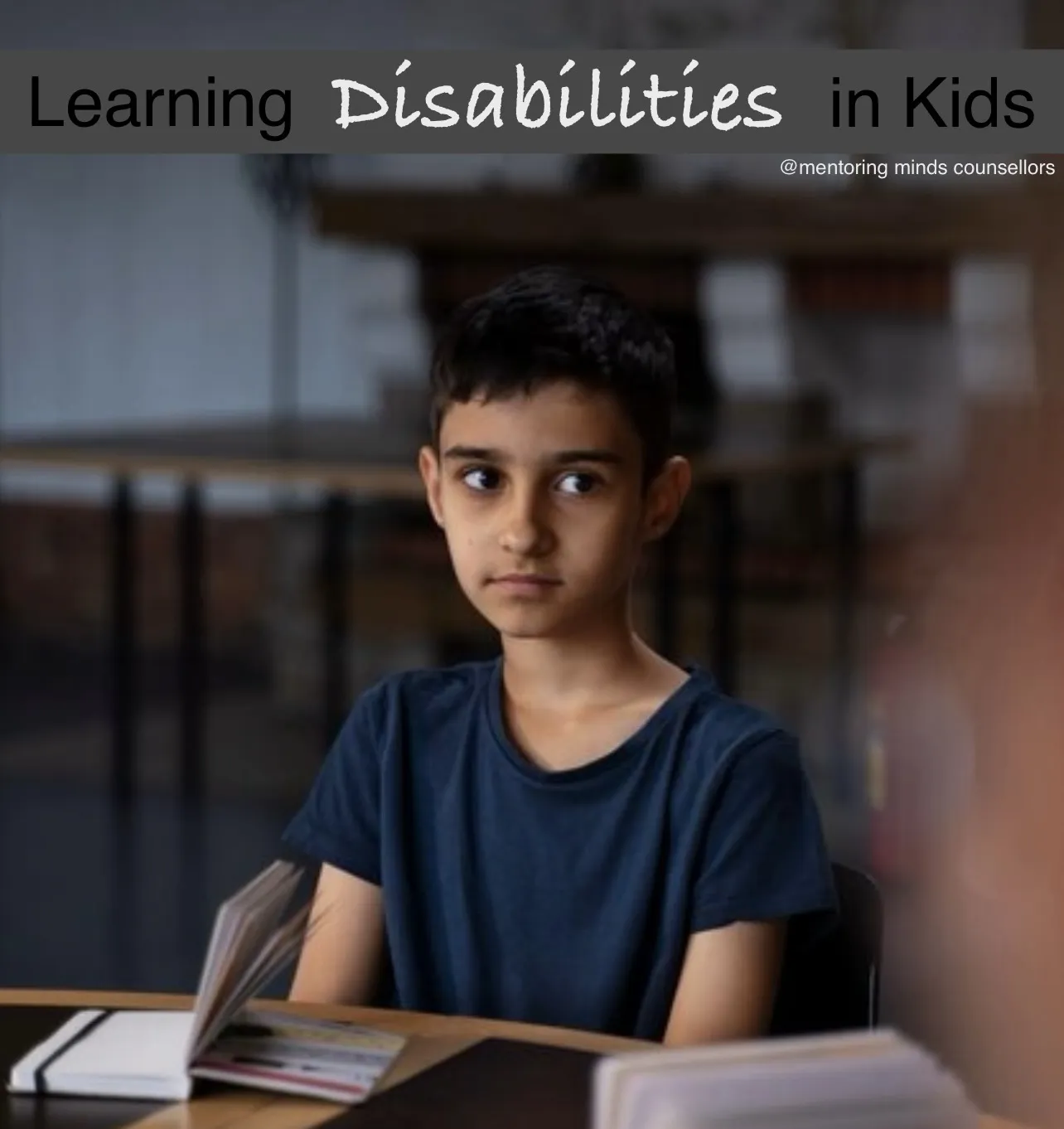When these challenges persist and interfere with academic progress, they might be signs of a learning disability.
A learning disability (LD) doesn’t mean a child isn’t smart or capable. It simply means their brain processes information differently. With the right support and understanding, children with LDs can thrive and succeed just like anyone else.
What are some of these LD in Kids?
1. Dyslexia – Difficulty with Reading
Dyslexia is one of the most well-known learning disabilities. Children with dyslexia often have trouble reading fluently, recognizing words, or understanding written text. They might reverse letters (like “b” and “d”) or struggle to connect sounds to letters.
2. Dyscalculia – Difficulty with Math
Kids with dyscalculia find numbers and math concepts confusing. They may struggle with counting, understanding time, memorizing math facts, or solving basic equations.
3. Dysgraphia – Difficulty with Writing
This affects a child’s ability to write clearly and organize their thoughts on paper. Their handwriting might be messy, and writing tasks can feel exhausting.
4. Auditory Processing Disorder (APD)
Children with APD have trouble understanding sounds especially in noisy environments. Their hearing might be normal, but their brain struggles to interpret what they hear correctly.
5. Visual Processing Disorder (VPD)
This disorder affects how the brain interprets visual information. Kids might see letters or shapes but mix them up or lose their place while reading.
6. Nonverbal Learning Disability (NLD)
Children with NLD usually have strong language skills but find it hard to understand nonverbal cues like body language or facial expressions. They may also struggle with coordination and visual-spatial tasks.
What Causes Learning Disabilities?
- Genetic Factors:
Learning disabilities often run in families. If a parent or sibling has an LD, there’s a higher chance the child might have one too. - Brain Development:
Differences in how certain areas of the brain process information especially related to reading, writing, or math can lead to LDs. - Pregnancy and Birth Complications:
Exposure to toxins, infections, alcohol, or premature birth can affect brain development and increase the risk of learning disabilities. - Early Childhood Factors:
Head injuries, poor nutrition, or exposure to environmental toxins like lead can impact brain function.
Final Thoughts
We at Mentoring Minds Counsellors understand that having a learning disability doesn’t define a child’s potential it just means they need a different approach to learning. With early identification, tailored teaching methods, and emotional support, children with learning disabilities can not only catch up but also excel in their own unique ways.
The key lies in understanding, patience, and empowerment helping them see that their challenges don’t limit them; they simply make their path to success a little different.


Leave a Comment